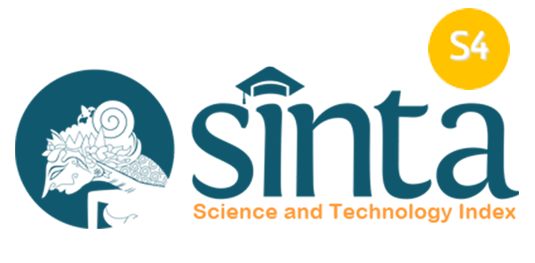Influence of Gamification Elements on Students’ Academic Performance
Abstract
Playing games is an important part of a child's cognitive and social development. Students learn more when they are allowed to play and engage in hands-on activities rather than being forced to memorize knowledge (formulas) from books. Enjoyable components must be incorporated into their classes to maintain their attention and increase their performance. The great benefits that gamification offers must be integrated into the basic level of education to limit the easily bored span. Appropriate integration of gamification into classroom activities could raise a positive effect on students’ performance and promote a positive attitude toward learning. This study could provide teachers with information and awareness on innovative instructional approaches that can boost students’ engagement, motivation, and performance while learning. It can also serve as an eye-opener for teachers in other fields of learning to explore and adopt better instructional approaches to teaching to improve student performance. Training of teachers on the use of gamification-based teaching should be integrated into our educational sector. This research was conducted to determine the influence of gamification elements on student academic achievement.
Keywords
Full Text:
PDFReferences
Barbieri, G. G., Barbieri, R., and Capone, R. (2021). Serious games in high school mathematics lessons: An embedded case study in Europe. EURASIA Journal of Mathematics, Science and Technology Education, 17(5), 1-17.
Barrio, C. M., Muñoz-Organero, M., and Soriano, J. S. (2015). Can gamification improve the benefits of student response systems in learning? An experimental study. IEEE Transactions on Emerging Topics in Computing, 4(3), 429-438.
Brunder, P. (2015). Game on: Gamification in the classroom. The Education Digest, 56(7), 56-60.
Caballero, L. S., Ferrer, M. M., and Tiria, R. A. (2022). The role of gamification in the academic performance of junior high school students in language subject. International Journal of Scientific Research in Multidisciplinary Studies, 8(3), 01-04.
Carrillo, D. L., García, A. C., Laguna, T. R., Magán, G. R., and Moreno, J. L. (2019). Gamification in a teaching innovation project at the university of alcalá: a new approach to experimental science practices. Electronic Journal of E-Learning, 17(2), 93-106
Giakalaras, M. M. (2016). Gamification and storytelling. Journal of Cultural Technology and Communication, 1(1), 1-7.
Holguin, J., Taxa, F., Flores, R. and Olaya, S. (2020). Educational projects of gamification by video games: Development of numerical thinking and school reasoning in vulnerable contexts. EDMETIC, 9(1), 80 – 103.
Kehoe, A., and Goudzwaard, M. (2015). E-portfolios, badges, and the whole digital self: How evidence-based learning pedagogies and technologies can support integrative learning and identity development. Theory Into Practice, 54(4), 343–351.
Kladchuen, R. and Srisomphan, J. (2021). The synthesis of a model of problem-based learning with the gamification concept to enhance the problemsolving skills for high vocational certificate. International Journal of Emerging Technologies in Learning, 16(4), 4-21.
Koivisto, J. and Hamari, J. (2014). Demographic differences in perceived benefits from gamification. Computers in Human Behavior, 35, 179-188.
Landers, R. N. (2014). Developing a theory of gamified learning: Linking serious games and gamification of learning. Simulation and Gaming, 45(6), 752-768.
Lebuna, J. C., Elloran, E. J., Losañes, R., Genegaban, R., Solinap, J. P., Gotera, R. J. and Nicmic, A. M. (2022). Gamification and learners’ motivation in the new normal. The 3rd International Conference on Information Technology and Security, 1(1), 73-81.
Lister, M. C. (2015). Gamification: The effect on student motivation and performance at the post-secondary level. Issues and Trends in Educational Technology, 3(2), 1-22.
McLaughlin, T. and Yan, Z. (2017). Diverse delivery methods and strong psychological benefits: A review of online formative assessment. Journal of Computer Assisted Learning, 33, 562–574.
Mee-Mee, R. W., Tengku-Shahdan, T. S., Ismail, M. R., Ghani, K. A., Pek, L. S., Von, W. Y. and Rao, Y. S. (2020). Role of gamification in classroom teaching: Pre-service teachers’ view. International Journal of Evaluation and Research in Education (IJERE), 9(3), 684-690.
Nah, F. H., Zeng, Q., Telaprolu, V. R., Ayyappa, A. P. and Eschenbrenner, B. (2014). Gamification of education; A review of Literature. HCIB 2014, 85(27), 401-409.
Nwachukwu, U. M. and Johnson, P. A. (2020). Effect of gamification on performance and interest of students in basic technology in rivers state. International Journal of Innovative Information Systems and Technology Research, 8(2), 26-36.
Ofosu-Ampong, K. (2020). The shift to gamification in education: A review on dominant issues. Journal of Educational Technology Systems, 49(1), 113-137.
Ogo-Chukwu, C. F., and Fomsi, E. F. (2019). Gamification - influence on elementary pupils’ learning outcomes and engagement in English language. European Centre for Research Training and Development UK, 7(2), 50-62.
Rao, H. (2022). Gamification in higher education: A systematic literature review with particular reference to octalysis as the futuristic framework for further research. Journal for Leadership and Instruction, 21(2), 38-47.
Shamsuddin, S. W., Selman, M. F., Ismail, I., Amin, M. M. and Raw, N. A. (2018). A conceptual framework for a gamified learning management system for LINUS students. Indonesian Journal of Electrical Engineering and Computer Science, 12(3), 1380-1385.
Smiderle, R., Rigo, S. J., Marques, L. B., Peçanha de Miranda Coelho, J. A., and Jaques, P. A. (2020). The impact of gamification on students’ learning, engagement and behavior based on their personality traits. Smart Learning Environments, 7(1), 1-11.
Ukala, C. C. (2018). Gamifying the classroom with mobile devices to enhance students’ of public junior secondary. European Journal of Research and Reflection in Educational Sciences, 6(3), 41-48.
Yusoff, M. B., Hadie, S. H., and Rahim, A. A. (2014). Adopting programmatic feedback to enhance the learning of complex skills: a cognitive load-based perspective. Med Education, 48(2), 104–112
Zulkifli, N. R., Mat-Zin, N. A., and Majid, R. A. (2019). Gamification design for teaching numeracy to slow learners. International Journal of Innovative Technology and Exploring Engineering (IJITEE), 8(85), 215-220.
DOI: https://doi.org/10.17509/ijotis.v3i2.59581
Refbacks
- There are currently no refbacks.
Copyright (c) 2023 Universitas Pendidikan Indonesia

This work is licensed under a Creative Commons Attribution-ShareAlike 4.0 International License.
Indonesian Journal of Teaching in Science (IJoTIS) is published by Universitas Pendidikan Indonesia (UPI)
 Indonesian Journal of Teaching in Science
Indonesian Journal of Teaching in Science



